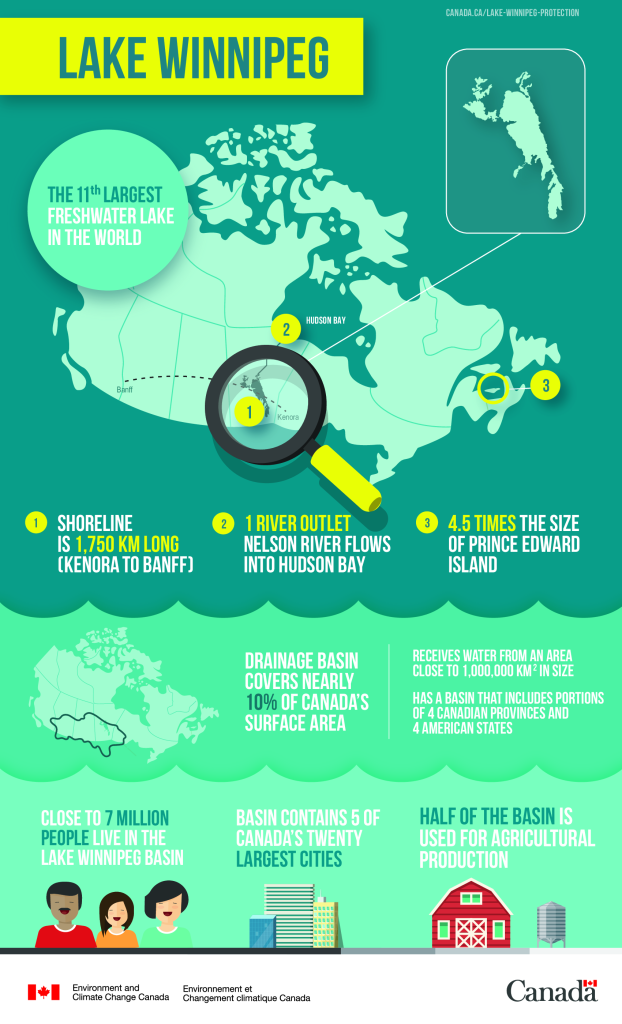The Government of Canada is taking action to improve the ecological health of Lake Winnipeg and its basin. Lake Winnipeg is experiencing large and frequent algal blooms due to high nutrient levels from multiple transboundary sources, including agriculture, industry, municipal wastewater and surface runoff.
In order to address freshwater issues in the basin, the Government of Canada launched the Lake Winnipeg Basin Initiative (2008-2012) with an investment of $17.7 million in funding, followed by an investment of $18 million (2012-2017).
Budget 2017 confirmed the Government of Canada’s commitment to addressing freshwater issues through an investment of $25.7 million and the launch of Environment and Climate Change Canada’s (ECCC) Lake Winnipeg Basin Program (2017-2022). The Lake Winnipeg Basin Program (LWBP) is taking action to reduce excessive nutrients – such as phosphorus – from entering the lake, is enhancing collaboration throughout the basin and is supporting the engagement of Indigenous Peoples on freshwater issues.
The LWBP advances ECCC research to better understand:
- Nutrient loading in agricultural streams;
- The response in Lake Winnipeg to nutrient reduction action in the basin;
- The impact of climate variability on nutrient loading;
- The impact of zebra mussels on nutrient cycling and the food web.
The LWBP also provides financial support through an application-based funding program for targeted, outcome-focused action, in the following three key freshwater priority areas:
- Nutrient reduction: support for targeted stakeholder delivered projects in the Lake Winnipeg Basin, in key geographic areas, that demonstrate an effective means to reduce phosphorus loading and increase public knowledge and engagement
- Collaborative governance: encourage and strengthen collaborative efforts to reduce nutrients throughout the Lake Winnipeg Basin
- Indigenous engagement: enhance opportunities, capacity and the engagement of Indigenous governments, organizations and communities on Lake Winnipeg Basin nutrient issues
